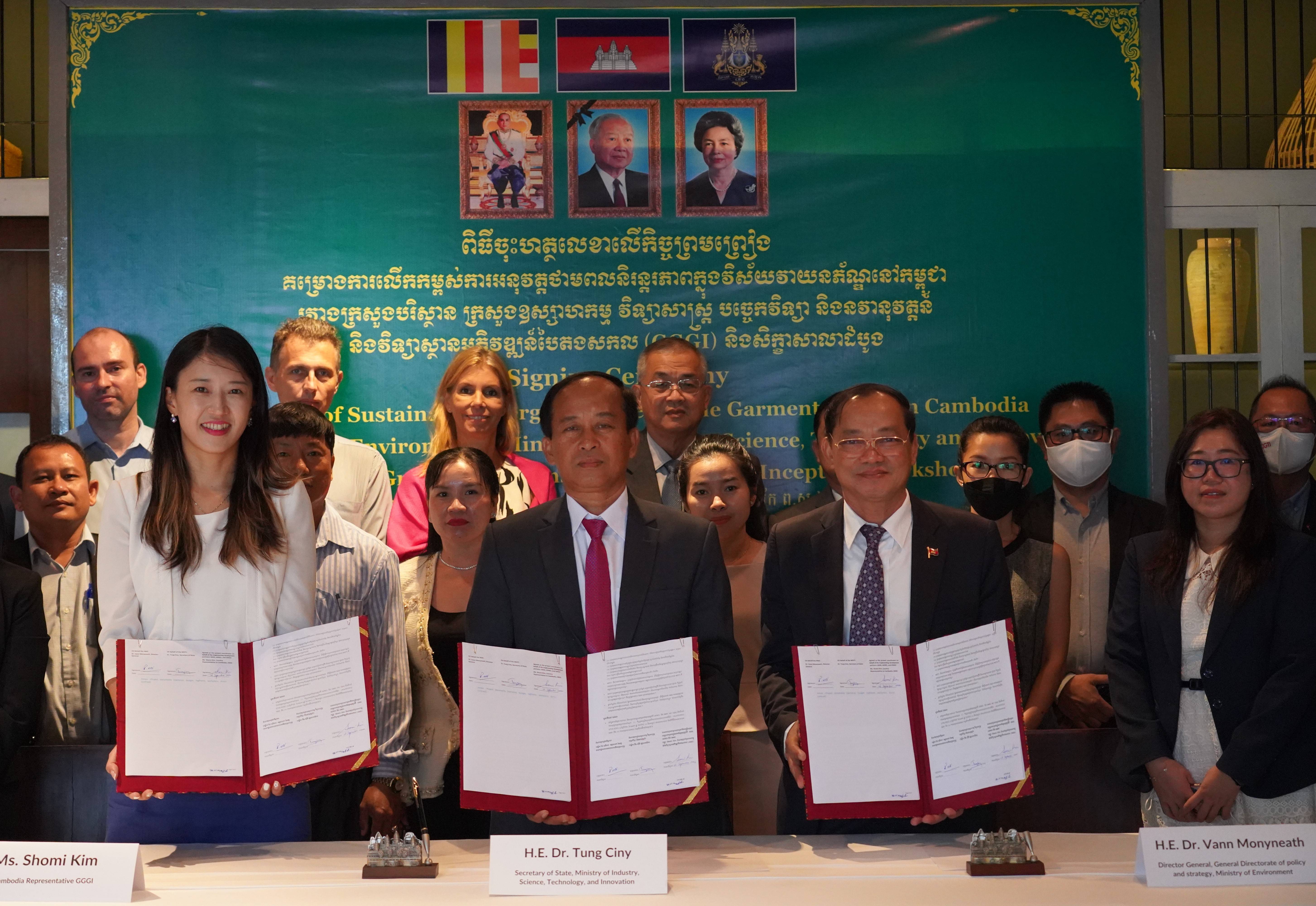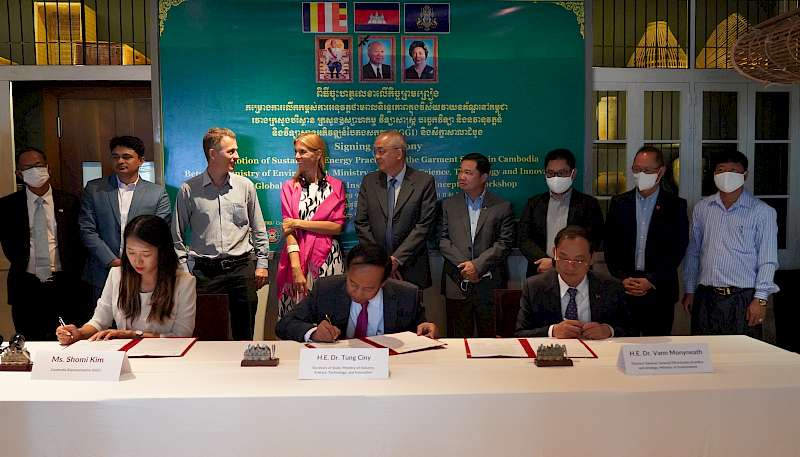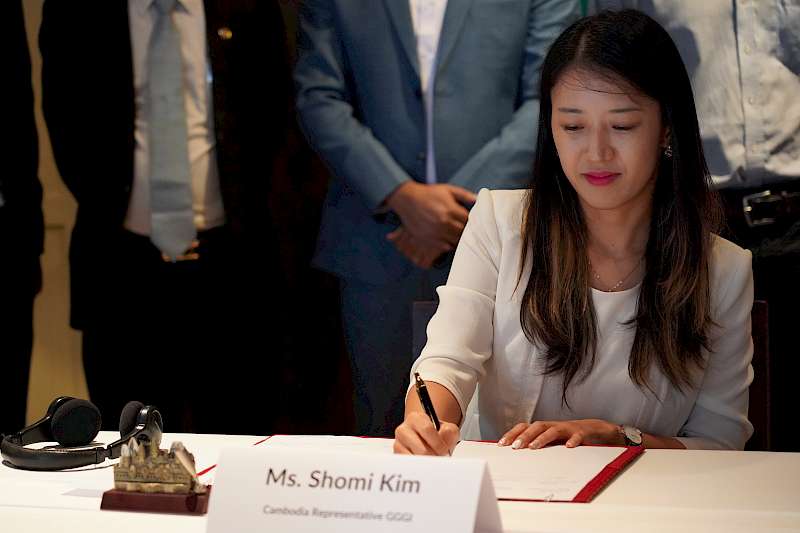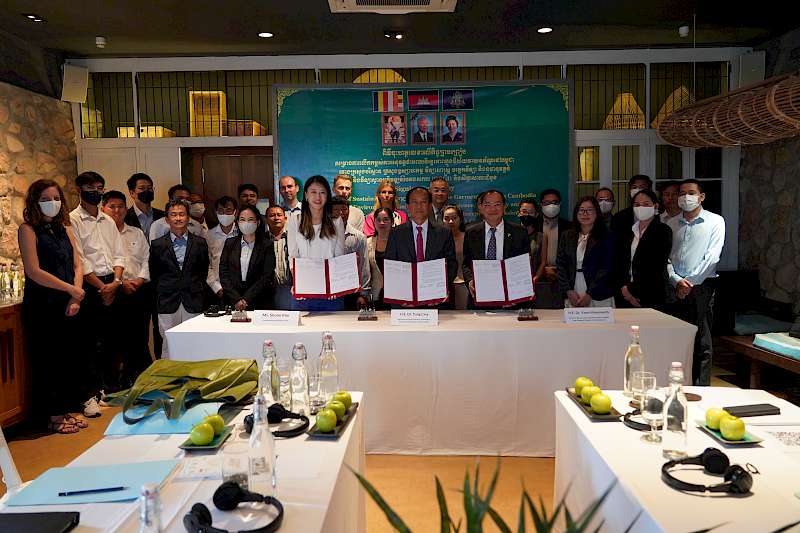
Launched in 2020, the EU funded SWITCH-Asia Promotion of Sustainable Energy Practices in the Garment Sector in Cambodia (Switch Garment) project has been working towards increasing the competitiveness and decreasing the environmental impact of the Cambodian garment industry through the adoption of sustainable energy practices and facilitating investments in clean energy technologies.
On 6th September, leading implementor the Global Green Growth Institute (GGGI), joined hands with the Kingdom of Cambodia’s environment and industry ministries by signing a sustainable energy agreement for the garment sector in the Kep province. The event was attended by ministries’ representatives, development partners and project implementers, including Geres and the Garment Manufacturers Association in Cambodia (GMAC).



The agreement was signed by Tung Ciny, Secretary of State of Ministry of Industry, Science, Technology, and Innovation; Vann Monyneath, Director General, General Directorate of Policy and Strategy, Ministry of Environment; Shomi Kim, GGGI Cambodia Country Representative under the presidency of Tin Ponlok, Secretary of State of Ministry of Environment and Second Vice-Chair of the National Council for Sustainable Development on behalf of Say Samal, Minister of Environment and Chair of the National Council for Sustainable Development.
This event marked an important milestone for the Switch Garment project as commitments to join efforts among the three agencies have been renewed and strengthened in efforts to promote sustainability and energy efficiency in the garment sector in Cambodia.
“Albeit the delay, it is crucial that we are all here together with the same objectives and goals to advance the sustainability in the garment sector which is the major industry player in Cambodia,” said Shomi Kim, GGGI Cambodia Country Representative.
Moreover, Ly Tek Heng, GMAC Operations Manager explained a fair share of international brands are placing a greater focus on sustainability initiatives and encouraging manufacturers to adopt clean energy options. He urged Cambodian garment factories to follow suit or risk losing their competitive edge amid the ongoing transition, accelerated by increasing environmental awareness among consumers.
Tin Ponlok , Ministry of Environment Secretary of State, commented that energy-efficiency measures will bring down electricity costs and increase profits, noting that power rates are still higher in Cambodia than in other regional countries. The garment industry has been playing an important role in supporting the Cambodian economy, contributing more than 15 per cent of gross domestic product (GDP). Responsible and well-managed initiatives that promote economic growth, while limiting negative environmental and societal impacts must be supported.
Ponlok also mentioned Cambodia’s 2020 updated Nationally Determined Contributions (NDCs), in which the Kingdom noted that it revised its greenhouse gas (GHG) reduction target to 41.7 per cent – or 64.6 million tonnes of carbon dioxide equivalent (MtCO2e) per year – by 2030, of which 21.3 per cent is from energy and 9.1 per cent from industrial processes and product use.
By the end of Switch Garment’s life span, energy costs for the Cambodian garment industry will be around 20 per cent lower and the Kingdom’s annual GHG emissions will have reduced by some 175 thousand tonnes of carbon dioxide equivalent (ktCO2e), Ponlok remarked.
Partners of the now-formalised agreement will be actively involved in reviewing the project's progress and planning its next steps, as well as improving the pertinent policies, regulations and implementation measures to deliver on the underlying joint commitments over the remaining couple of years.
Featured in the media


